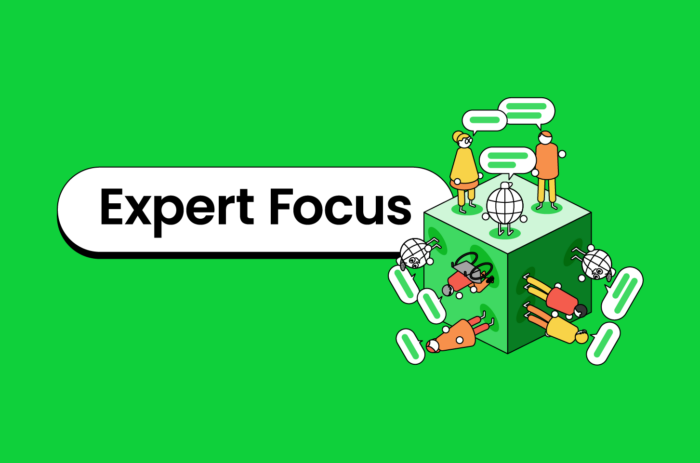This month, we’re putting a focus on employee wellbeing within marketing agencies.
We know that employee wellbeing is important for the growth and success of an agency. By putting your people first, you’ll create a culture for your company that people love being a part of.
With that in mind, we spoke to a group of local SEO experts, to find out what makes their company culture what it is. They’ve shared valuable ideas to help you make your agency the best place to work!
Employee wellbeing; our core ‘culture’ word is ‘balance’. RicketyRoo has been 100% remote since 2018 and we’ve learned a lot in the last five years. I look at a big part of my role as acquiring great talent for our team. Once we acquire great talent, I need to keep them happy. How do I do that? I’ve implemented things that I would personally be looking for if I were looking for a job. Such as:
- Competitive compensation
- Average 33-35 hour work weeks (not 40+)
- 100% remote
- Employees set their own schedules
- Company-paid health, dental, and vision insurance
- 401(k) with a 5% company match
- 12-week paid maternal, paternal, and adoption leave
- PTO, sick pay, natural disaster, and bereavement pay policies
Those are all ‘things’ that have served the agency as a great foundation.
When it comes to the company culture, that’s a bit harder to define.
The culture, in our case, has mainly been set by the team. The agency didn’t go through some elaborate process or workshop to figure it out, it just became what it is. As our team grows, the culture will naturally evolve, too.
Here’s what’s really helped us have a STELLAR culture:
- I meet with each person on the team every week for a weekly sync
- One weekly all-hands meeting
- Every quarter I meet with each person on the team. It’s a reverse performance review where I’m wanting to make sure they feel like the work they are doing is aligning with their career path, what their career path is, and how the agency can help them get there.
- Roo Book Club
- Cafe Disco—We all go over a process together or we bring in an expert to school us on their expertise.
I think understanding what your employees care about is crucial. It’s not the same for everyone. One of the best decisions we ever made was our unlimited vacation policy. It allows people to have the freedom to take the time off work they want instead of dictating it for them.
I spoke with another Kick Point team member Laura Salter, Co. Director of Strategy to help provide you with an answer to this question:
- The number one thing is to treat each other as humans first—even (and maybe especially) when that goes against what we’ve all been taught about how businesses ‘should’ run.
- Pay fairly, give people the time off they need (without guilt), and work at creating safe spaces for people to be themselves.
- Really spend the time to determine what kind of workloads are possible, manageable, and sustainable for each of your team members and structure your timelines and deadlines around that.
- Be realistic and clear with clients about timelines (and how they will change as the project goes on) from the beginning instead of overpromising and under-delivering.
- Be deliberate in choosing to work with clients that see your working relationship as an equal partnership.
- Listen and follow through. If something is making your team unhappy, actually work to change it. No empty promises.
In my experience, employee well-being comes down to many factors. If I had to isolate one I would say this: Treat your employees well and provide opportunities for them to do the things they love most and are good at.
It’s just me here at Claire Carlile Marketing Towers so I’m my own Career Architect, Business Coach, and HR Manager. I think I’ve come a long way in understanding what I personally need in order to balance work life, home life, health and fitness, family life, personal life, and emotional health—from investing in psychotherapy to embracing the role of meds in helping keep myself in balance.
We’ve doubled down on work-life balance and company wellbeing. We’ve instituted profit-sharing bonuses and retention bonuses to reward our team. We’ve recently switched to unlimited PTO, and we’re monitoring the time people take away from work to ensure that everyone takes a break… If someone goes too long without taking time off, we require a few days off. With so many remote employees, personal connections aren’t as easy to make, so we make sure to have social hangouts where people can chat and get to know each other. It’s also important to keep the team learning, so we’re constantly training and teaching.
Don’t miss Greg discussing how he’s leveled up SearchLab’s company culture as the agency has grown exponentially over the past few years, in our past webinar. Watch the replay!
Work culture is changing rapidly in the aftermath of the pandemic, and the rise of working from home. For companies to continue to draw and retain staff to this structure, elements that may have previously been overlooked need to be addressed. Communication should be easy (I love Slack for this), and occasional get-togethers are nice. Yearly gatherings are also a great way to build positive company culture among those who are based far apart. But truly the best thing is to encourage positive communication on a regular basis. Slack channels, video chats, and message boards are great for sharing resources and experiences.
The places I’ve worked with the best cultures have focused on transparency, curiosity, acceptance, empowerment, and personal development. These weren’t just nice words on an “about us” page but principles that the agency owners lived by and practiced themselves. One of my favorite things about working at RicketyRoo is that Blake cares about what each member of the team wants to do with their career.
The biggest mistake agencies can make with their culture is to not consciously consider their principles when making new hires, choosing clients, communicating internally, and producing work.
Having a voice and being heard is super important. We use slack as our main way of internally communicating, and we have a specific channel where no owners are involved in, this allows our people to communicate effectively with each other with zero oversight. A. It is a sign of trust, B. It allows for creativity and venting.
Then there is our feedback loop, we have calls with all staff bi-weekly and touch base on everything from personal issues to professional needs. Additionally, most ideas from the owners are vetted by the team and this allows for changes and sometimes even vetos, we are very aware that our team is in the trenches and their wellbeing is paramount, no one likes to do things they are told to do, it really needs to be more of a hey we all feel this way.
Also, every meeting ends with any thoughts, ideas, or concerns that you want to discuss. This can be as open-ended as our team wants. Everyone has a voice.
Lastly, we are a 100 % remote team, this is a benefit for sure but can always lead to problems for some. So we make sure to team build at least once a year in Vegas for a retreat.
I think collaboration is great for company culture and that cross-team collaboration can be beneficial as well. You can learn so much from your coworkers and especially in an agency where people have so many backgrounds and experiences to share. Nothing really compares to a big team brainstorming session.
One of my favorite things that we do is have a Slack channel dedicated to shouting out team members. It’s great to see our team members supporting each other and hearing about all the great things that everyone is doing.
We continued the conversation around agency culture at our recent webinar with Greg Gifford and Jen Salamandick. Catch up with the replay to learn more about how strategy and culture are the keystones of a successful agency.














